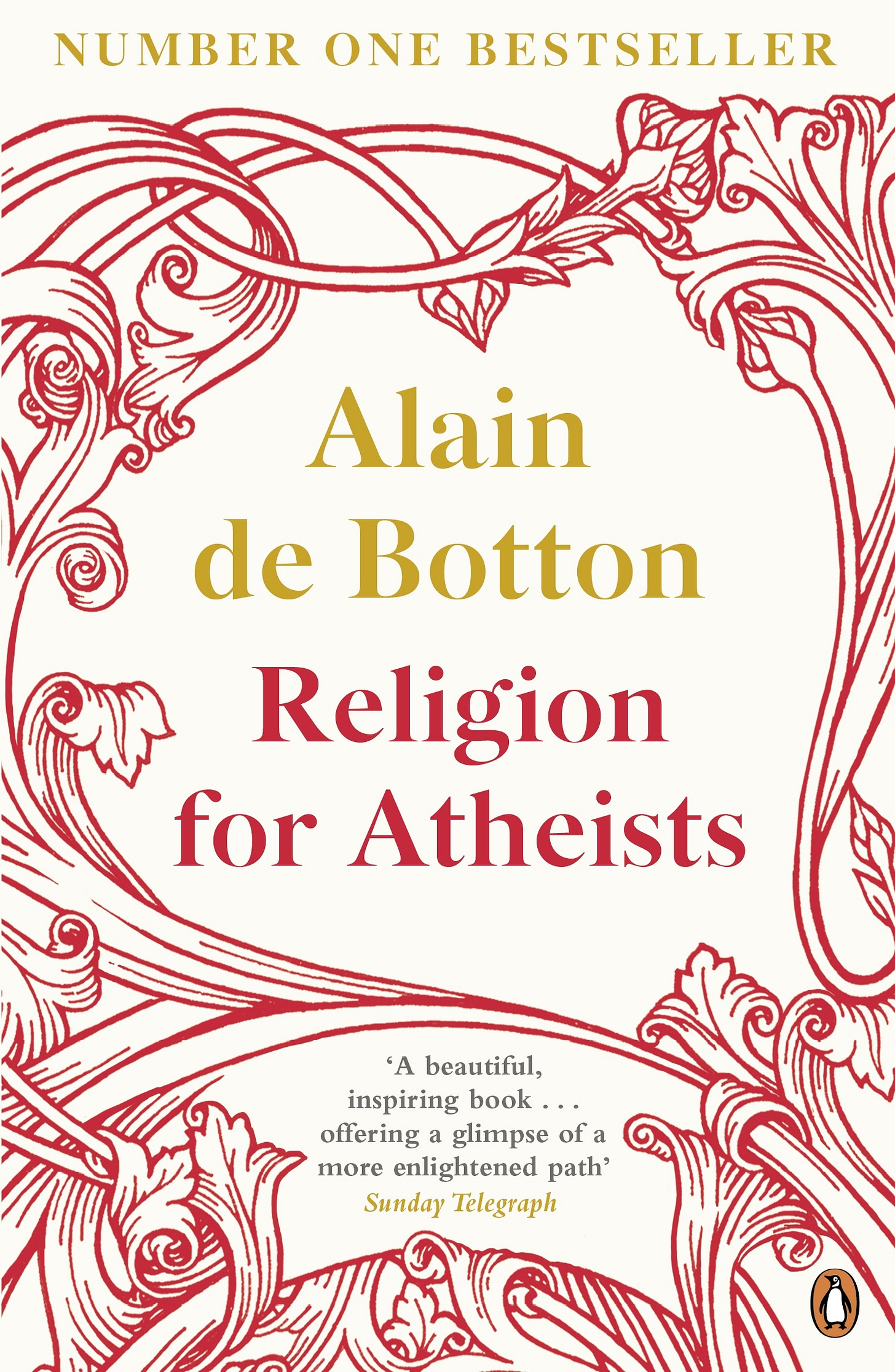Thank you to I Ate Auckland reader Caspar, who sent me this book, with a handwritten note last week.
The note wasn’t written by Caspar, but by some guy at Unity books who’d written it under dictation (I’ve done this for Valentine’s Day cards before - a deeply embarrassing experience where you feel obligated to explain your flirtatious half-jokes to the florist who must surely, in that moment, be regretting her vocational choices).
“You said you wanted a new reference” said Caspar, referring to my post last week. “This is probably the best book I have read. I smashed it on a train once on the way to the south of France. I wanted the holiday to finish so I could read the other half!!!”
Wishing for your Provencal holiday to end so that you can get back to reading a book on a train is a deeply Alain de Botton sentiment. A philosopher who focuses on modern problems, he wrote a famous book called The Art of Travel in which he pointed out that travel is much worse than we think it is. We tend to remember the very best times - eating sushi at the Tokyo fish market! - but conveniently forget that much of our holiday time is spent sitting on a bus, bored, watching a fly crawl across the window. Worse, we spend all this money on plane tickets and hotel accommodation before sitting down with a cocktail next to the pool and realising that though we have successfully escaped the drudgery of home, we are still stuck in the monotony of our own heads. We are unable to take a holiday from ourselves.
Most depressing of all was his chapter about saying the wrong thing to his girlfriend on holiday and causing an argument. There is almost nothing more bleak and stressful than being out of favour with the one you love, and nothing about the Fijian sunset can make it better. It probably makes it worse.
No, Alain de Botton is not for everyone. I remember media reviews at the time being, like “wha-?”. But I felt his words deeply and moved quickly onto his next book, Status Anxiety, in which he claims that we have an outsized obsession with status, and that the obsession is almost inescapable - as soon as you finally get promoted ahead of the guy next to you, you start comparing yourself to the new guy sitting next to you. Tom Cruise is no more satisfied with his social status than you are - he’s just comparing himself to different people.
I found out Alain de Botton was visiting Wellington on a Status Anxiety book tour, and I took a first date. What was I thinking? I still don’t know the ideal conditions for romance but I’m pretty sure they don’t involve sitting in a lecture theatre hearing a balding philosopher tell you to get some perspective (my date was probably the most glamorous woman I have ever been out with, and she’d just ended a relationship with one of Wellington’s most high-profile rich listers - she must have been looking around the room wondering how her own status had plummeted so fast).
Like I said, Alain de Botton is not for everyone. But Religion for Atheists is a wonderful book, thanks Caspar.
A typical atheist point of view is that God isn’t real, so anybody who believes in God must be stupid, and that any system of beliefs built around God must be stupid too.But, this book says, what if we were to agree that God isn’t real? We could then put that part of religious debate aside and ask whether there is anything left in religion that we might make use of (he acknowledges this viewpoint may be offensive to the religious - I suppose to them it would be like saying “what can I get out of a romantic relationship by pretending to love someone?”, but let’s put that aside).
Community, a moral framework, good feasts, a weekly escape from the world where money and power matter, into a church (or similar) where we are all equal. Some of the rituals of religion, he says, are very good at reminding you what is essential and valuable about life. Stand up, sit down, stand up, sing a song - this isn’t a pointless set of instructions but a time-tested method for getting your brain out of the world and feeling like part of a collective.
I’m part way through a chapter on Yom Kippur, an annual Jewish tradition in which you make contact with the people you have wronged and apologise to them. How useful would this be to all of us? A yearly excuse - an obligation even - to call up the friend you fell out with and admit you were part of the problem. Without religion or something like it we miss out on some of the things that make communities thrive and, importantly, make life ultimately more enjoyable.
Now I’m jumping on a plane to Christchurch for a long weekend with my beautiful family. Please enjoy this short book review and if you like the sound for it buy a copy for yourself, but please, not for somebody you’re trying to get it on with.





Thank you again for taking the time to sort out some positiveness from all the anti-church anti-god anti-religion.
You’ve come up with a good formula for living a useful happy life out of all of the above.
I’m just checking if Alain de Botton is on audio books.
I absolutely loved The Bee Sting and have just finished Tomorrow and Tomorrow and Tomorrow, both as audio books from the library via. the Libby app. Keep the recommendations coming, such rich experiences for free!